Miguel rescues Cape Verde’s endangered giant sea turtles
Giant sea turtles in western Africa are threatened with extinction. But Miguel from Cape Verde faithfully patrols the beaches to keep them safe while they lay their eggs.
Miguel rescues Cape Verde’s endangered giant sea turtles
DW reporter Carla Fernandes on meeting with Miguel in Cape Verde:
Boavista island on Cape Verde has lovely beaches! When I went there that was all that came to my mind. But this beauty became much deeper when I realized the meaning it has for the balance of an animal species like the marine turtles. Marine turtles prefer sandy beaches to make their nests. So looking at the white sand gain a new meaning: life. It was impressive to see a sea turtle laying her eggs on the sandy beach of Curralito and I was much more moved by this experience than I thought I would be.
Visit the Turtle Foundation’s website.
Here is the Turtle Foundation’s blog on its work on Cape Verde.
Latvian IT expert gives the people a voice in politics
Kristofs, 23, from Riga wanted to get his fellow citizens more involved in politics. He launched a unique website that allows for digital petitions – and it’s been an immediate success.
Latvian IT expert gives the people a voice in politics
From DW reporter Gederts Gelzis in Riga:
For us Latvians, politics is usually something that seems to be very distant. We are more or less like outsiders and, God forbid, if you’re involved into politics in some way or another, you will likely hear: “There’s no dirtier business than that!” And if somebody happens to be connected with politics, then they will be men and women at least in their late thirties, forties or older.
That’s why I was really surprised when I met Kristofs Blaus at his rather small, but light, cosy and somewhat trendy office near the port of Riga – a 15-minute walk from the old town. I didn’t find a serious, middle-aged man wearing a pin-striped suit and holding a leather suitcase standing in front of me. There was a young 23-year-old in a casual outfit and with an unusual hairstyle.
He kind of embodies the great difference between the older generation of Latvians, which experienced the Soviet era and those kids who grew up in the country during the last two decades. He speaks English fluently; he’s an Internet-dweller and speaks his mind openly. And that’s not all – he really seems to care about his debt-ridden country’s future and is willing to do something about it.
I guess that many of his peers think similarly and that’s why his website Manabalss.lv isn’t just a project which happens to be in the right place at the right time. It’s that the tide is slowly turning on what the young Latvians think about participation in political events and during the interview I felt that Kristofs is a clear example of it.
Of course, Kristofs is just one of the 700,000 inhabitants of Riga and the word “politics” is on everyone’s lips ahead of the general election on September 17. But as long as Kristofs doesn’t give up his enthusiasm for developing the website, I believe that there will be more and more Latvians willing to bring about some positive change in their country.
Here is Kristofs’ website manabalss.lv.
And here is his personal blog.
Belgian woman sweetens life for homeless during Ramadan
Yasmina is a 24-year-old accountant from Brussels. During the month of Ramadan, she and her friends provide food for homeless people living in the city’s North Station.
Belgian woman sweetens life for homeless during Ramadan
DW reporter Yaldaz Sadakova in Brussels shares her experience meeting up with Yasmina:
I literally stumbled upon the story about Yasmina helping homeless people. It happened because I live not too far from the notorious Gare du Nord – or North Station. If you’re visiting Brussels, it’s one of the places the locals warn you to stay away from at night. It’s right by the city’s famous red light district.
I was coming home on a recent evening and for some reason decided to walk right by Gare du Nord, something I never do because it’s a detour for me.
And then I saw all the commotion – a line of homeless people waiting for food. Three young women in trendy clothes were handing out plates of macaroni and cheese.
“Want something to eat?” one of the homeless men said to me, motioning towards the line.
I assumed the women handing out food were social workers. But turned out they’re a group of friends who do this not because they belong to an organization, but just because they want to. As observant Muslims, they chose to do it during Ramadan, the month in the Islamic calendar when Muslims are supposed to do charitable things. They did it last year, too.
So, naturally, reporting this story was a fresh reminder that you don’t need to wait for someone to give you permission to make a difference. That you don’t have to start with something big – every small thing matters. That you don’t have to reach a certain age and acquire a certain amount of experience – all these women were in their early 20s.
Doing this story was also a painful reminder about how pervasive homelessness is in this city. According to official estimates, about 2,000 homeless people live here. But experts say this number is likely higher. Just a walk around downtown Brussels and the city’s other train stations would definitely confirm that.
Many of these homeless people appear to be migrants, especially from Eastern Europe, who have either lost their jobs or still haven’t found any. For example, the majority of the people helped by Yasmina and her friends are from Slovakia.
They seem to be hungry for attention. When I spoke to them, they tried to emphasize in their broken English how hard it is back home where they said they face discrimination as members of the Roma community – and how hard it is here in Belgium, where they can’t find jobs because they don’t speak the local language.
Quite depressing, especially when you consider that they’re here with their kids, who are mostly toddlers. They are, by the way, some of the most affectionate children I’ve ever met. I think the visits of Yasmina and her friends are the highlights of their day. They jump and scream around the women and grab their legs and clothes. Their faces may be caked with snot and food, but at those particular moments, they’re beaming.
Yasmina responds to them with hugs. I think that on some level, her affection does more for these kids than the actual food.
So I’m considering changing my route and walking by Gare du Nord on my way home more often. Hopefully, soon enough, I won’t be seeing these families as they get a fresh start in Brussels. But sadly, they will likely be replaced by new ones.
Burmese activist risks personal safety for political change
Bo Bo, a 23-year-old Burmese student and musician, left his home behind because of politics. But his group of young political dissidents still advocates for change inside Burma, despite the huge risks.
Burmese activist risks personal safety for political change
Reporter David Meyers writes about the political situation in Burma:
In 1990, the people of Burma voted in civilian leaders to push their country forward – only to have Burma’s military rulers refuse to concede power. In the past year, the country experienced its first national election since the 1990 poll, yet in many respects, the state of democracy remains as stagnant as it was 20 years ago. Though Burma, or Myanmar as it is officially known, has at least nominally returned to civilian control, the election was widely seen as a foregone conclusion. Opposition figure Aung San Suu Kyi was finally released from her long-standing house arrest following the November election, yet her role in her country’s political future remains cloudy. And though Burma’s authorities released dozens of political prisoners earlier this year – including hip hop star Zayar Thaw, whose politicized music had landed him in prison – almost 2,000 still remain behind bars. Being a political dissident in Burma, then, remains a dangerous job. Members of the anti-regime group Zayar Thaw founded, Generation Wave, are politically active, yet they live under the threat of arrest and carry out their work underground.
Med student broaches tough issues with teens
When teens face tough issues, like sex, alcohol and drug abuse, parents and teachers are the last people they want to talk to. So Italian medical student Barbara co-founded a peer group to address teen’s questions.
Barbara Ariatti and her fellow peer educators are all medical students at the University of Bologna. It’s a very special place to study as it’s said to be the oldest university in the world!
Almost a thousand years’ worth of students have attended its faculties, most of which are still located in beautiful medieval buildings in the historic city center.
No surprise then that one of the city’s nicknames is Bologna la dotta: “Bologna the Learned.”
The Faculty of Medicine has its own very special history too. During the 17th century, medical professors performed some of the earliest dissections of human cadavers in the Anatomical Theater.
It was one of the first universities to teach anatomy this way, much to the displeasure of the Catholic Church, which opposed the practice.
Made of wood, with a marble dissection slab in the center, the Anatomical Theater was almost completely destroyed by bombs during World War II, but was then perfectly reconstructed, using as much of the original wood as possible. And you can still visit it today. Look out for the so-called spellati – two “skinless” naked wooden statues on either side of the teaching chair, literally showing off all their muscles!
Here’s the University of Bologna’s website.
Ivan in Mozambique preserves his town’s cultural heritage
Ivan comes from a poor city in Mozambique, but one that is rich in cultural history. He founded a tour organization that takes tourists off the beaten path and helps preserve the hidden cultural treasures in his home.
US college student stays committed to Romanian orphans
Clare first went to a Romanian orphanage 11 years ago. She was 17, and her school offered a chance to volunteer over spring break. That week, she got an idea that would change her life – and the lives of the kids.
Here is the website of Clare’s organization, Open Doors.
Berlin ‘upcycler’ turns trash into treasures
Used teabags become necklaces and empty tetra paks turn into shower curtains. Julia Vernersson encourages others to think differently about waste by making useful – and beautiful – everyday objects out of it.
See some of Julia’s work here.
Liberian radio host helps fight HIV on air
When Cornelius, 23, returned home to Liberia after 10 years in a refugee camp, he decided to do his part to rebuild the post-war country. He’s breaking barriers and changing lives by talking about sex on the radio.
Stand-up comedy teacher spreads confidence
Bryan Bowden is a teacher and a rebel. In his classroom, kids are encouraged to raise their voices, instead of their hands. By teaching stand-up comedy, Bryan helps his students discover their talents.
Check out Bryan’s blog.



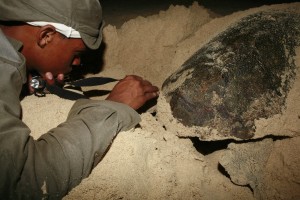

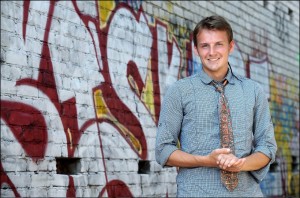
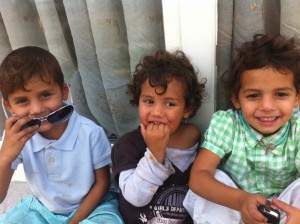
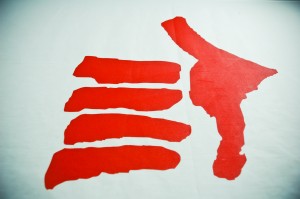
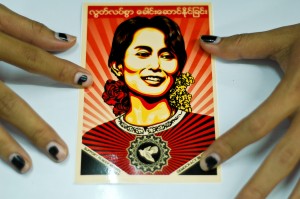
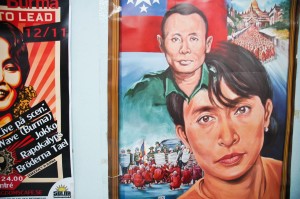
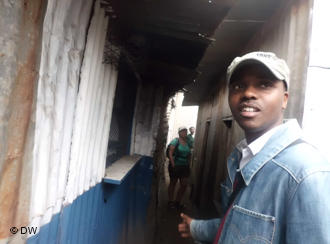
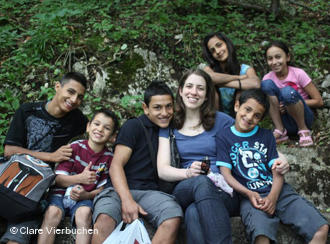
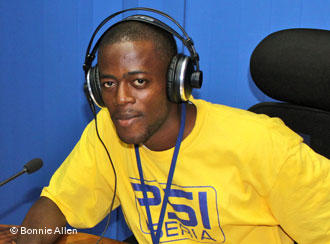
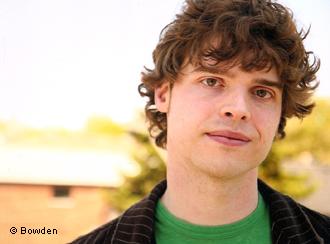




Feedback